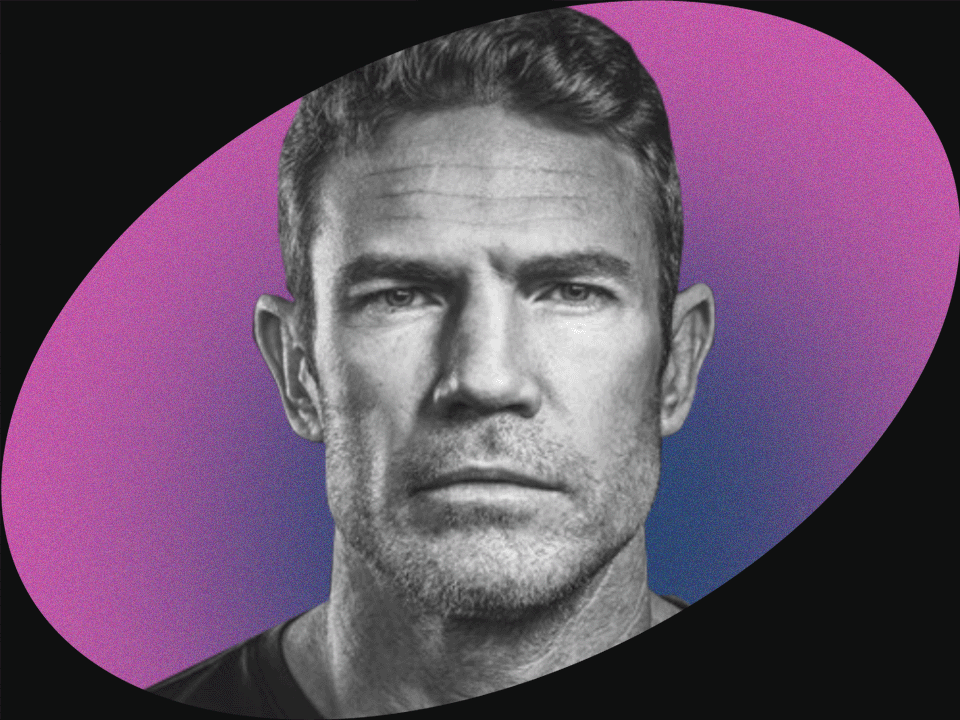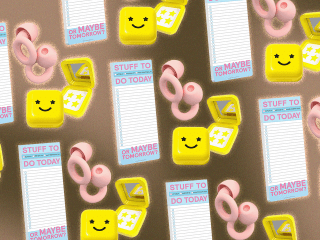Nate Boyer on Prioritizing Mental Health After the Military and NFL
The former Seattle Seahawk and Green Beret knows what it feels like to find purpose again after hanging up a uniform.
If you’re a football fan, you might recognize Nate Boyer as the former Seattle Seahawk and Green Beret who spoke with Colin Kaepernick about taking a knee. With years spent in the military and playing college and pro football, Boyer has seen athletes and veterans at “the top of their game” and on “the other side of that, when people lose the uniform, identity, and that sense of purpose.”
Inspired by the similar post-career journeys many athletes and veterans share, Boyer founded the Merging Vets and Players (MVP) nonprofit, where he brings the groups together to train and participate in peer-to-peer mental health coaching sessions. Now, Boyer is joining another cause close to his heart as the chief of veteran affairs at White Flag, a mental health app that offers free and anonymous peer support. Here, Boyer speaks to Wondermind about the importance of finding your purpose again, asking for help, and chasing new opportunities.
[Sign up here to never miss these candid conversations delivered straight to your inbox.]
WM: What inspired you to work with White Flag?
Nate Boyer: Everybody has a struggle in one way or another, right? The populaces that I'm focusing on are the veteran and athlete populace. At the end of the day, we're human beings just like everybody else. We volunteered to join the military or poured everything in our life into football or [another sport], but we still struggle, like everybody else, with moving on and feeling like we belong. What's unique about White Flag is it promotes and offers opportunities for people to connect with those they normally wouldn't. There’s also a certain amount of people that aren't comfortable coming into the gym and talking about [their mental health]. Maybe they want to maintain some anonymity, or maybe they'd prefer to connect with somebody they don't personally know. The communication opportunity that White Flag offers is very special.
As someone who has this military veteran background, I know there are so many people in the veteran community that don't feel comfortable reaching out and talking to somebody. A lot of them are worried about the way they may be looked at by their peers. Maybe they're still in the military on active duty, and they're like, Well, if I show weakness or share that I'm struggling with something, I'm going to not only be judged, but I may get removed from my job because [they think] I'm weak and not able to conduct these duties. So it's really important to not only change that narrative but also be a resource and be available to those that need it. … From the military side, there are not only [people who need help with] post-traumatic stress, but also life.
WM: How has that peer support helped you as a veteran and former pro athlete?
NB: Man, it's been amazing. If I didn't have my mental health support team and people that I knew would not judge me, people who I knew would just be there to listen, and people who are willing to reach out to me when they're struggling, that gives me purpose. Sometimes to feel better and more comfortable and mentally healthy, I need a challenge and an opportunity to help somebody. I want to be of service; I want to be available, so all of that is super important to my growth.
Now, I'm mostly working in the film and TV space. Storytelling is incredibly valuable to me—I'm big on authentic storytelling. … But you have to be vulnerable to be a good storyteller. You have to be willing to open up and be comfortable with the good, the bad, and the ugly of who you are and what you're doing. It has been so valuable to know that it's OK for me to have those days where I'm just down and know that I have people I can call upon, people I can reach out to and say, “Look, I'm not doing so hot today.”
I also love being on the flip side of that. I love when people feel like they could use words of encouragement or just an ear and reach out to me and feel confident and comfortable instead of trying to deal with it alone or tough it out. When they'd rather reach out to me or somebody in my network and talk through the situation, that's amazing. … [It’s about] how can we all be healthier together?
WM: How did you find your purpose after leaving the military and the Seahawks?
NB: Honestly, it was the veterans and athletes that I had built relationships with. It was those who honestly didn't have as good of a transition as I did, those who were really struggling with figuring out who they are and what they want to do next. I had this passion and dream of being able to tell our stories, and I didn't have much experience in the film and TV space. I had a belief that I could do it if I had the right people around me because I'd seen some pretty incredible things on the football field and on the battlefield that had been done when people were up against the odds and it felt like an impossible mission, but we figure it out together.
If it doesn't feel right or something's not working, we can always try something else—that's OK. I don't sit well and can't live with the regret of not trying or never attempting. That's something I think a lot of people do share, but so many of us are scared to take that first step, to make that phone call, to have that conversation because we're so worried about the result. We're so worried about: Is it going to work? I don't want to put this time and energy into it if I'm going to fail. But at the end of the day, if you're not willing to fail, you're never going to accomplish anything great. That's just the reality.
WM: What's something you've dramatically improved about your mental health?
NB: The willingness to not try to do everything alone. I still struggle with it. There are still times where—and it's my own ego getting in the way—I think, I can do anything. I can handle this alone. It usually doesn't end up well.
After years and years and years of always trying to go it alone, I finally started letting people help me and being OK with asking for help and passing off responsibility to other people at times. … I think it's from deeper-seated issues with me that I have these trust issues that a job isn’t going to get done or that people aren’t going to follow through. I worry whether or not the sky is falling and if everything's going to fall apart if I don't fix it myself or if I don't do it myself.
It puts a lot of stress and anxiety in my life that's not necessary. A lot of people can relate to that. There comes a time when if you've built a rapport and trust with somebody at some level and feel like they can handle it, then a lot of those people would be honored to take on that burden and responsibility to help you out. That's one of the biggest things that I’ve improved upon. I still have a long way to go.
WM: What mental health advice would you give to other veterans, service members, or athletes?
NB: You got to where you got and achieved what you achieved because you're highly capable. It's very common for us to feel like our greatest days are behind us and [think], I'll never be great again. I peaked already. It's very common for us to shy away from challenges and obstacles that become opportunities to do things because we're worried that we're just not worth it anymore, like we've already had our moment. Or [we feel] like we were part of this really important mission and had this incredible team and purpose, but now we don't have that anymore, and we'll never get back to that place. So what's the point in trying? I think a lot of athletes and vets will try to rest on their laurels and wait for opportunities to come their way, and it doesn't work like that.
When we move on with our lives, we have to work in the mail room again. We have to be willing to start at the bottom and work in the mailroom wherever we want to go. It doesn't matter if you're 40 years old and you've never worked in that field or you’ve never had the time to be a good family member—it's never too late to start. [You might think], Well, I didn't take the traditional path. I'm such a late bloomer. What's the point in even trying? That's ridiculous, and it gets in our own way, and it really hinders our potential because we put these limitations on ourselves that are just imaginary. Society says, “Well, if you don't go in this order at this point in your life, then XYZ will never happen.” It’s not true. … There’s so much value in those other things that you did and those lessons. … You have certain skills that no one else has. You can't buy that stuff; you can't learn that in the classroom. It's invaluable. … You have an opportunity no matter where you're at because of what you did in the past. You're going to figure it out. You’re going to find a way.
To spend our lives waiting for the perfect opportunity or the right time to connect with somebody or improve our lives is a disservice to yourself. No matter who you are, you deserve better than that. You deserve a team, you deserve to feel valuable, and you deserve assistance and help. … Once you start to believe that, I'm not going to say [life] becomes easier, but you are more willing to attack it in a positive way.
This interview has been edited and condensed for length and clarity.
Wondermind does not provide medical advice, diagnosis, or treatment. Any information published on this website or by this brand is not intended as a replacement for medical advice. Always consult a qualified health or mental health professional with any questions or concerns about your mental health.




